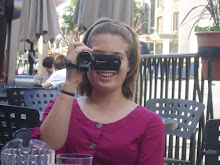Here's the pertinent question and answer:
I’m a librarian. A regular patron, a man in his late 40s or early 50s and virtually technologically illiterate, asked me to print a few e-mail attachments for him — photos of a young and attractive Russian woman. Many of the messages were titled “I Love You” or the like and included explicit requests for money. I believe he is being scammed. May I intervene, or does that violate his privacy and my professional boundaries? N.P., LAWRENCE, KAN.
The professional — and delicate — response is to give your patron excellent service without criticizing or embarrassing him. A skilled reference librarian often goes beyond a patron’s specific request, suggesting resources he has not even considered. You can provide this fellow with the information that he needs to protect himself from (or at least become aware of) possible fraud — and without using the words “You love-drunk old fool.”
Ann Thornton, a director of reference and research services at the New York Public Library, concurs via e-mail: “If the librarian handles the matter in a confidential, courteous manner and offers appropriate resources, he/she is providing a higher level of service. Therefore, it is well within the scope of his/her professional responsibility.”
Thornton suggests one such resource the patron might value: “He may want to take a look at some tips about protecting himself online; provide him with a handout of best practices from a reputable organization like the Internet Crime Complaint Center (www.ic3.gov/preventiontips.aspx).” Her approach is tactful and practical, a thoroughly ethical combination.This seems as good a place as any for some discussion about labels and rhetoric. (Isn't always?) I enjoyed today's column and afterward spent a bit of my afternoon reading through the Ethicist Archives to get a sense of the kind of issues and answers he deals with.
I noticed that the range of questions he published was much broader than in the typical advice column (Abby posted ANOTHER letter about someone wrestling with the fact that she met her S.O. through an online dating site. Really, people? Still??). Randy's columns often had to do with behavior on the job, but all KINDS of jobs. And not just "my co-worker hums too loudly and leaves candy out on her desk even though she KNOWS I'm trying to lose weight" (no, seriously, the other columnists get--and worse, print--this stuff).
There was nothing, or very little, about tangled up love lives or misbehaving children. Lots to do with employee-employer, customer-associate, neighbor-neighbor, or stranger-stranger relations. My sense is that this is because column explicitly has to do with ethics, as Miss Manners' does with etiquette. Most other columns claim no more than to offer general advice (Prudence advertises guidance on "manners and morals," which, though pleasantly alliterative, is not really any more specific.) In these cases, "what should I do?" is determined according to a set of values, the law of the land, Emily Post, psychology, "He's Just Not That Into You" or the columnist's own instinct or favorite acronym (MYOB, DTMFA).
There's nothing particularly different about the process of creating The Ethicist--in one place Randy says "ethics, by which I mean me." In another, he discusses how ethics and abiding by the law can (depending on the situation) move in the same or in opposite directions. In short, he does the same thing that all advice columnists do: draws on his personal experience, personal set of values, network of experts, and other sources of knowledge to give the best, most reasonable answer that he can. And yet nevertheless, the name of the column (and perhaps that the author is a man? Discuss.) leads to an entirely different (often less angst-ridden, and less redundant) sort of question. Exes are out, ethics are in.
Note: I wrote my title for this entry before I realized that Randy Cohen has written a book called The Good, The Bad, and the Difference.





No comments:
Post a Comment